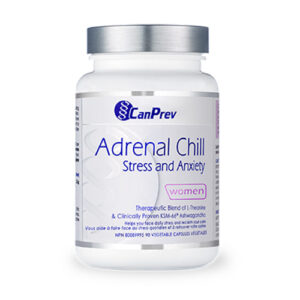Nutritional tips for Stress & Anxiety
Anxiety can be a symptom of severe stress.
It is the overreaction of the autonomic nervous system, where the fight or flight mechanism is activated and exaggerated and is usually accompanied by symptoms such as shortness of breath, heart palpitations, and tingling sensations in the extremities.
The unpleasant emotional state can range from minor unease to extreme fear. While fear is a rational response to threat, anxiety lacks a real or reasonable threat.
Anxious individuals typically have a feeling like something unpleasant is going to happen. They may fear that they have a life threatening illness – a belief that is reinforced by the symptoms of anxiety.
Inability to relax can lead to difficulty in getting sleep and constant waking in the night.
Can be caused by psychological problems as well as biochemical factors. Perhaps the most significant biochemical disturbance noted in people with anxiety and panic attacks is an elevated blood lactic acid level and an increased ratio of lactic acid to pyruvic acid. Lactate, the soluble form of lactic acid is the final product in the breakdown of blood sugar (glucose) when there is a lack of oxygen.
There are at least 6 nutritional factors that may be responsible for elevated lactate levels or ratios of lactic acid to pyruvic acid.
- Alcohol
- Sugar
- Caffeine
- Deficiency of calcium or magnesium
- Deficiency of B vitamins
- Food allergens
By reducing caffeine, sugar and alcohol intake, and correcting any magnesium, calcium or B vitamin deficiencies, individuals can go a long way toward alleviating their symptoms.
Most common symptoms
– heart palpitations
– Throbbing or stabbing pains (chest area)
– A feeling of tightness
– Inability to take in enough air
– Tendency to sign or hyperventilate
– Tension in the muscles of the back and neck often leads to headaches, back pains and muscle spasms
– Excessive sweating
– Dryness of the mouth
– dizziness
– Digestive disturbances
– Constant need to urinate or defecate
Types of stressors
– Physical
– Mental
– Emotional
Tissues affected by stress
– Adrenals
-Thyroid
– Arteries
– Heart
– Brain
– Muscles
– Intestinal tract, stomach
SHOP CALM & RELAXATION
Most Popular for Stress & Anxiety Relief







